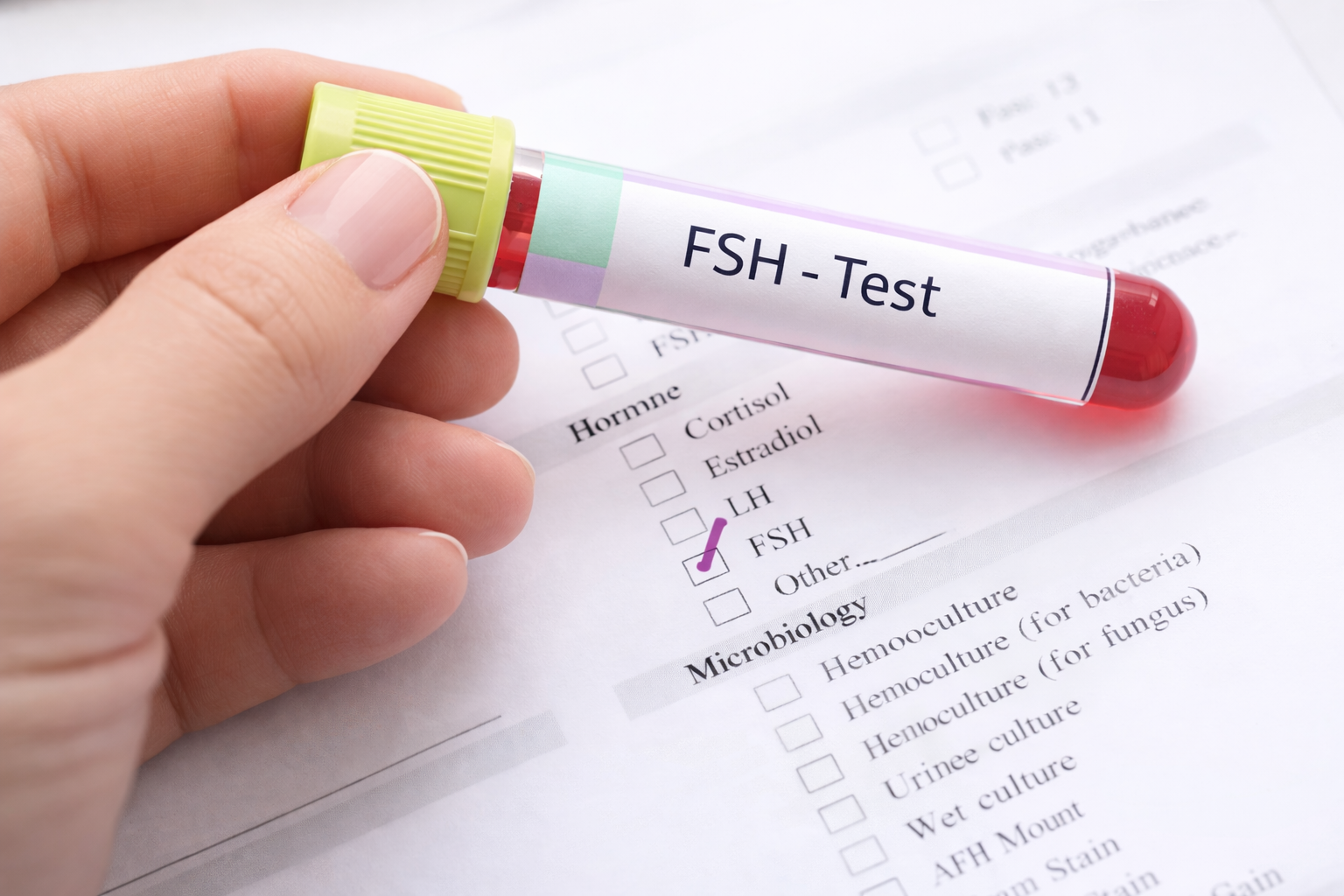Weight gain is a normal part of perimenopause. In this guide, you’ll learn what causes perimenopause weight gain, why weight loss gets harder, and what you need to know to build a sustainable perimenopause weight loss plan.

Weight gain is a normal part of perimenopause. In this guide, you’ll learn what causes perimenopause weight gain, why weight loss gets harder, and what you need to know to build a sustainable perimenopause weight loss plan.
Did you know that, on average, people gain 1.5 pounds each year of perimenopause [1]? Did you also know that it’s biologically harder to lose that weight?
Perimenopause weight loss requires adapting your approach to hormonal changes. Focus on strength training to counteract muscle loss, eat a balanced diet with lean proteins and whole grains, prioritize quality sleep, and set realistic goals. While weight loss is harder during perimenopause due to decreased metabolism and muscle mass, sustainable lifestyle changes make it achievable.
Whether you’re looking to lose weight during perimenopause or just want to understand perimenopause weight changes, this guide has you covered. We’ll tell you why weight loss can be more challenging during perimenopause, and give you actionable strategies to help you manage weight while feeling your best physically and mentally.
Perimenopause weight loss by numbers
- Average weight gain: 1.5 pounds per year during perimenopause
- Recommended exercise frequency: 3 times per week, including strength training
- Ideal plate composition: ¼ lean protein + ¼ whole grain carbs + ½ fruits, vegetables, salad
- Perimenopause duration: 4-10 years on average
Key takeaway: Small, consistent lifestyle changes deliver better results than extreme diets
Why perimenopause causes weight gain
Weight loss during perimenopause doesn’t just feel harder, it actually is harder, and the causes behind perimenopause weight gain are part of the reason.
For starters, during perimenopause, muscle mass decreases while total body fat increases [1]. That means you naturally start to lose muscles and gain more fat.
Losing muscle mass makes your metabolism slower, and a slower metabolism makes it easier to gain weight and harder to lose it. That’s why you can put on extra pounds during perimenopause even when your diet and exercise habits haven’t changed [1].
At the same time, decreasing estrogen levels cause your body to redistribute weight to the abdominal area. In other words, you’re more likely to see perimenopause weight gain in your belly, rather than places like the hips or thighs [2].
These changes to muscle mass, metabolism, and weight distribution alter the pre-perimenopause mechanisms that your body used to keep weight stable or drop a few pounds. The result: you naturally gain weight, and losing that weight gets harder.
Plus, other perimenopause symptoms can impact your diet, energy levels, and exercise habits, making weight gain more likely and weight loss more difficult:
- Increased stress
- Trouble sleeping
- Mood swings and other emotional symptoms
- Fatigue
- Brain fog
- Joint pain
- Muscle aches
What’s a healthy perimenopause weight?
No one single figure corresponds to a healthy body, and nor is there a universal ideal body weight. Powerful, strong, and healthy bodies come in all different shapes and sizes. Your healthy weight is a measurement that’s unique to you, your body, and your lifestyle.
It’s important to remember that you aren’t required to lose perimenopause weight. But if you’re concerned about weight gain or how perimenopause is impacting your physical activity, check in with your doctor to evaluate your unique needs. Together, you can build a holistic and personalized approach to your perimenopause care.
How to lose weight during perimenopause
Perimenopause weight loss may be harder, but it's not impossible. The key is adapting your approach to meet the needs of your changing body.
Lifestyle strategies prioritizing movement, diet, and sleep, combined with realistic expectations, can help you feel your best and achieve your perimenopause weight loss goals.
Exercise for perimenopause weight loss
Movement is essential for boosting physical resilience and managing weight in perimenopause. The research shows that regular exercise helps counteract muscle mass loss to keep your body strong during perimenopause [3]. Strength training is particularly crucial for building muscle and speeding up metabolism [4].
Aim to exercise around three times a week, as possible. Whatever gets your body moving is good! Try:
- Walking
- Biking
- Yoga
- Swimming
- Jogging
- Fitness classes, like Pilates, Zumba, or spin classes
- Strength training, using:
- Bodyweight exercises (squats, knee push-ups, ankle taps)
- Resistance bands
- Free weights (dumbbells, kettlebells)
Best perimenopause diets for weight loss
A healthy, nutritious, and balanced perimenopause diet nourishes your body through perimenopause and beyond. Plus, combining regular exercise with a balanced diet helps you achieve your perimenopause weight loss goals.
Prioritize a diet rich in fruits, vegetables, lean proteins (like chicken, turkey, salmon, tuna, dairy, beans, lentils, and tofu), and whole grains (think: brown rice, brown pasta, oatmeal, quinoa, and bulgur). Try to eat fewer processed foods and foods high in sugar – although you don’t need to cut out sweets entirely!
To help you visualize your perimenopause diet, the British Menopause Society recommends filling your plate with one-quarter protein, one-quarter carbs, and one-half fruits, vegetables, or salad [4].
How sleep and stress affect perimenopause weight loss
Quality sleep and stress reduction are also important pieces of your perimenopause weight loss plan.
Improve your sleep quality with good sleep hygiene habits, like having a regular sleep schedule and relaxing bedtime routine. Better sleep helps you feel more grounded, boosts emotional resilience, and increases your daytime energy levels.
Stress-reduction strategies like meditation, mindfulness exercises, deep breathing, and other relaxation techniques help manage stress. So do activities that bring you happiness and quality time with friends and loved ones.
When you feel your best physically and mentally, you’re more prepared to take on your perimenopause weight loss goals.
Setting realistic weight loss goals in perimenopause
Unrealistic weight loss expectations set you up for disappointment and a skewed view of your efforts and progress.
Be kind to yourself instead! Set achievable, steady, and realistic perimenopause weight loss goals, so you can make headway while feeling good mentally and physically.
Then, monitor progress and adapt your strategies as needed. The Oova perimenopause kit has a user-friendly notes section that makes it easy to track your perimenopause care, symptoms, and lifestyle adjustments, all in one space.
Menopause weight loss pills and supplements: what works?
Currently, there isn’t much clinical research suggesting that weight loss pills or supplements can help you lose weight in perimenopause. Still, some may help address factors that contribute to perimenopause weight gain.
The potential best perimenopause and menopause supplements for weight loss support include these:
- Vitamin D supports muscles and muscle recovery, so you can stay physically active [5]. Vitamin D combined with calcium may also help prevent weight gain [6].
- Calcium may help stabilize perimenopause weight gain [7]. Calcium could help postmenopausal women lose weight, but more research is needed [8].
- Probiotics support gut health, and may help keep weight stable in perimenopause by regulating appetite, metabolism, and energy use [9,8].
- Magnesium may help reduce weight, body fat, and waist size, particularly in women [10]. Magnesium may also help you sleep better, which can boost energy levels and support exercise [11].
Keep in mind that perimenopause and menopause supplements are a way to support other efforts – they’re not a replacement or quick fix.
Lifestyle strategies are the cornerstones of perimenopause weight management. Weight loss pills and supplements may be used in some cases alongside these strategies, but always talk to your doctor first.
How to build a sustainable perimenopause weight loss plan
Weight management is a long-term commitment, and consistency is key. Remember that even small adjustments can bring meaningful improvements to your health and quality of life.
Build your perimenopause weight loss plan around sustainable habits that can last through perimenopause and beyond:
- Do workouts that you enjoy: Make exercise a fun activity instead of a dreaded chore.
- Find community: Join fitness classes or exercise with friends to help boost motivation.
- Tailor your plan to your body and lifestyle: Do you prefer working out in the morning, midday, or night? Do you like multiple short workouts, or a couple longer sessions?
- Enjoy your perimenopause diet: If food is a source of anxiety, consider seeking professional help to eat healthily and joyfully.
- Take rest days: Recovery is essential for building muscles and avoiding injury.
At the same time, be sure to avoid these common mistakes that can stall or even stop your perimenopause weight loss journey. Don’t:
- Follow a crash diet or extreme restriction diet
- Overexercise
- Skip recovery time
- Rely exclusively on menopause weight loss pills or other quick fixes
Consider consulting healthcare and fitness professionals for help with perimenopause weight management. Experts like your primary care doctor, dieticians, personal trainers, and therapists are all great options for physical and emotional support.
Your perimenopause weight loss guide: The bottom line
Gaining weight in perimenopause is common. Finding weight loss challenging is just as common.
If you want to lose weight during perimenopause, focus on lifestyle strategies like regular exercise, a balanced perimenopause diet, sleep management, and stress reduction.
Above all, take pride in your body and mind, and remember to be kind to yourself. Perimenopause and midlife are full of change, but you’re still you and you’re still powerful!
Frequently Asked Questions About Perimenopause Weight Loss
How do you lose weight during perimenopause?
Focus on strength training 3 times per week, eat a balanced diet with lean proteins and whole grains, prioritize quality sleep, and manage stress. Consistency with sustainable lifestyle changes is more effective than crash diets.
Why is it so hard to lose weight during perimenopause?
Perimenopause causes muscle mass loss and slower metabolism, making weight gain easier and weight loss harder. Declining estrogen also redistributes fat to the abdominal area, even if your diet and exercise habits haven't changed.
What is the best perimenopause diet for weight loss?
A balanced diet with 1/4 lean protein, 1/4 whole grain carbs, and 1/2 fruits and vegetables. Prioritize foods like chicken, fish, beans, brown rice, quinoa, and plenty of produce. Limit processed foods and added sugars.
Do menopause weight loss pills work?
There isn't strong clinical evidence that weight loss pills specifically work for perimenopause. However, supplements like vitamin D, calcium, probiotics, and magnesium may support weight management efforts when combined with lifestyle changes. Always consult your doctor first.
How much weight do you gain during perimenopause?
On average, people gain 1.5 pounds per year during perimenopause. However, this varies greatly by individual based on lifestyle, genetics, and how you manage symptoms.
Can you prevent perimenopause weight gain?
While hormonal changes make some weight gain likely, regular strength training, a balanced diet, quality sleep, and stress management can help minimize weight gain and maintain a healthy weight during perimenopause.
How long does perimenopause weight gain last?
Weight changes typically occur throughout perimenopause (which can last 4-10 years) and may continue into early menopause. However, with consistent lifestyle strategies, you can manage your weight at any stage.
About the author

Sources
- North American Menopause Society. (2022). The 2022 hormone therapy position statement of The North American Menopause Society.
- North American Menopause Society. (2022). 2022 Annual Meeting of The North American Menopause Society October 12 – 15, 2022, Atlanta, GA.
- Hansen M. (2017). Female hormones: do they influence muscle and tendon protein metabolism?
- British Menopause Society. (2023). Menopause: Nutrition and Weight Gain.
- NIH, Office of Dietary Supplements. (2025). Vitamin D – Fact Sheet for Health Professionals.
- Caan B, et al. (2007). Calcium plus vitamin D supplementation and the risk of postmenopausal weight gain.
- Cormick G, et al. (2024). Calcium supplementation for people with overweight or obesity.
- NIH, Office of Dietary Supplements. (2022). Dietary Supplements for Weight Loss – Fact Sheet for Health Professionals.
- Cerdó T, et al. (2019). The Role of Probiotics and Prebiotics in the Prevention and Treatment of Obesity.
- Askari M, et al. (2020). The effects of magnesium supplementation on obesity measures in adults: a systematic review and dose-response meta-analysis of randomized controlled trials.
- Arab A, et al. (2022). The Role of Magnesium in Sleep Health: a Systematic Review of Available Literature.
About the Oova Blog:
Our content is developed with a commitment to high editorial standards and reliability. We prioritize referencing reputable sources and sharing where our insights come from. The Oova Blog is intended for informational purposes only and is never a substitute for professional medical advice. Always consult a healthcare provider before making any health decisions.



